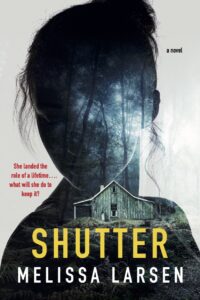What draws you to work in a specific genre?
The circumstance in which I find myself is what mainly determines the genre. The opportunities for writing and directing plays were abundant when I resided in New York City. Once I moved to New England, and no longer part of an active theatre group, short fiction became my primary writing outlet. For many years I’ve employed a service that requires me to have a new or revised story every two months which they then submit to various literary journals and magazines. This has functioned as a beneficial albeit artificial deadline for me without which my productivity would certainly have suffered. Concurrently I always have a novel in the making. The short fiction time limit permits a periodic return to the novel-in-progress with a fresh eye. Trading off between genres has worked well since I trust that one’s best work occurs in the rewriting.
You chose a career in the theater over completing your final year at seminary and becoming ordained. What led you to go down the literary/performance path over a life in the clergy?
Actually it was more of a crisis of faith that induced me to leave the theological seminary and enroll at the University of Iowa’s Playwright’s Workshop. Why the theatre? I venture these boyhood memories were persuasive: the dramaturgy surrounding the sacrament of High Mass, accompanying a vaudeville troupe of my father’s to entertain wounded World War II soldiers at various Veteran’s Administration Hospitals, and the heady attraction to the careers of paternal uncles, one a Monsignor and the other a performer in a traveling circus. It is no mystery why as an adult I became attracted to the work of such playwrights as Genet, Brecht, and Ionesco. Also, as my faith began to erode at seminary, I’d spend more time at McCarter Theatre on the Princeton University campus, witnessing rehearsals by established directors and actors. It was during those late evenings in the dark bowels of the McCarter that I realized this was the calling I’d answer. “The greatest mystery of all is reality,” writes Max Beckman, the German expressionist artist. It was in this sphere of exploration without answers that I felt more at home.
How did your work in the theater inform your work as a fiction writer?
My last play, NIGHTMOTHS, was performed at Westbeth Theatre, Bank Street, Greenwich Village, NYC, in 1974. Having settled in Boston soon thereafter and no longer having a troupe of actors to call on or an available theatre, I began writing and submitting stories for publication, several of which comprised my first fiction collection BANJO GREASE, released by Creative Arts Book Company, Berkeley, CA, 2000.
The years I spent writing and directing plays do materially inform my fiction writing. Specifically, when creating a character I often refer back to my study of Stanislavski and his seminal texts, AN ACTOR PREPARES and BUILDING A CHARACTER. It was at the McCarter rehearsals for STREETCAR NAMED DESIRE where I witnessed Peter Falk, of later Colombo fame, prepare for his role of Stanley Kowalski and learned about “affective memory.” It was customary to see him oblivious to the world walking about the campus prior to rehearsal getting into Stanley’s character . . . fundamentally transforming himself rather than “acting” the part in the more traditional manner once on stage.
When preparing to draw a character I rely on emotional memory to resurrect that “person” within my consciousness. It’s more an eidetic and less cerebral process in many respects.
I regret to say I am not involved in the theatre any longer. I reveled that it was a truly collaborative experience whereas the story or novel is mine alone. It takes one writer to bring a story, a novel, or a poem alive. The joy of working in the theatre is that one becomes several who share equally in the creation. I miss that.
Check Back on the Ides of March for Part II

